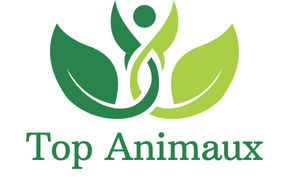Selecting sustainable diaper brands can be overwhelming for eco-conscious parents. With numerous options available, how do you make the right choice? This guide simplifies the decision-making process by offering key tips to identify brands committed to sustainability. Learn how to evaluate product materials, assess production practices, and consider environmental impact. Making informed choices not only benefits your child's comfort but also contributes positively to the planet. Explore these actionable tips and empower your parenting journey with eco-friendly decisions.
Understanding Sustainable Diapers
The shift towards sustainable diapers is gaining momentum as parents become more environmentally conscious. These diapers offer eco-friendly options that significantly reduce the environmental footprint compared to their traditional counterparts. Sustainable diapers are typically made from biodegradable materials, which break down more quickly and safely in the environment, reducing landfill waste.
In the same genre : Understanding UK Obstetricians” Approaches to Managing Prenatal Depression
Overview of Sustainable Diaper Options
There are several types of sustainable diapers available, including cloth diapers, which can be washed and reused, and biodegradable disposables, which decompose faster than regular disposables. Some brands also offer hybrid systems, combining reusable and disposable elements, providing flexibility and convenience for parents.
Importance of Sustainability in Diaper Production
Sustainability in diaper production is crucial due to the sheer volume of diapers used and discarded daily. Traditional diapers can take hundreds of years to decompose, contributing significantly to landfill waste. By choosing sustainable options, consumers can help reduce this environmental impact.
Additional reading : Exploring Hydrotherapy: A Guide for Expectant Mothers in the UK to Prepare for Labor
Environmental Impact of Traditional vs. Sustainable Diapers
Traditional diapers are often made with synthetic materials and chemicals that are harmful to the environment. In contrast, sustainable diapers use natural fibres and fewer chemicals, making them a healthier choice for both the planet and the baby. This shift not only supports environmental health but also encourages more responsible consumption practices.
Key Criteria for Evaluating Sustainable Diaper Brands
When considering eco-friendly diaper evaluation, it's vital to assess several key factors. These criteria help parents make informed decisions about which brands align with their values.
Materials Used in Diaper Production
The first criterion is the materials used. Sustainable diapers often incorporate natural fibres like bamboo or organic cotton, which are biodegradable and gentle on a baby's skin. Avoid materials like plastic and synthetic fibres, which can harm the environment and take centuries to decompose.
Manufacturing Processes and Practices
Equally important is the manufacturing process. Look for brands that prioritise energy-efficient production and utilise renewable energy sources. Companies that implement water-saving techniques and minimise waste during production demonstrate a commitment to sustainability.
Certifications and Eco-labels to Look For
Certifications and eco-labels provide assurance of a brand's environmental responsibility. Look for labels such as the Global Organic Textile Standard (GOTS) or the Forest Stewardship Council (FSC). These certifications ensure that the diapers meet stringent environmental and ethical standards. Brands that transparently share their sourcing and production practices often have a more credible commitment to sustainability.
Recommended Sustainable Diaper Brands in the UK
Navigating the world of eco-friendly diaper brands can be daunting, but knowing the top sustainable diaper recommendations in the UK can help. These brands are celebrated for their commitment to sustainability and quality.
Top UK Sustainable Diaper Brands
-
Bambo Nature: Known for using natural, skin-friendly materials, Bambo Nature offers excellent absorbency and comfort. Their diapers are certified by the Nordic Swan Ecolabel, ensuring minimal environmental impact.
-
Kit & Kin: Co-founded by Emma Bunton, this brand focuses on biodegradable materials and hypoallergenic products. Their diapers are crafted with sustainable wood pulp, providing a soft and breathable experience for babies.
-
Naty by Nature Babycare: This brand emphasises using renewable resources and eco-friendly production processes. Their diapers are free from harmful chemicals, offering a safe choice for environmentally conscious parents.
Price Comparison and Value
While sustainable diapers may have a higher upfront cost, they offer significant value for money through their eco-friendly benefits. Bambo Nature and Kit & Kin are competitively priced, offering a balance between cost and sustainability. Naty provides a premium option with a focus on natural materials. Choosing these brands supports both environmental initiatives and your baby's well-being.
Comparing Eco-Friendly Diaper Options
Navigating the world of eco-friendly diaper comparison can be challenging for parents seeking sustainable solutions. Understanding the differences between cloth and disposable sustainable diapers is crucial.
Cloth vs. Disposable Sustainable Diapers
Cloth diapers, often made from natural fibres, are reusable and can be more cost-effective over time. They require regular washing, which may increase water usage but reduce waste. On the other hand, biodegradable disposable diapers offer convenience and are designed to decompose more quickly than traditional disposables. They are ideal for parents who prefer a balance between sustainability and ease of use.
Performance and Absorbency Ratings
When it comes to sustainable diaper reviews, absorbency is a key factor. Brands like Bambo Nature and Kit & Kin are praised for their excellent absorbency, providing comfort and leak protection. Naty by Nature Babycare also scores high in performance, offering a reliable choice for parents prioritising both environmental impact and functionality.
Cost Analysis Over Time
A thorough diaper brand comparison reveals that while biodegradable options may have a higher initial cost, they can be more economical in the long run, especially in the case of cloth diapers. Investing in quality sustainable diapers supports environmental goals and can lead to savings over time.
Tips for Making Informed Choices
Making informed diaper choices is crucial for eco-conscious parents. Understanding product labels and claims is the first step. Look for terms like "biodegradable," "organic," and "hypoallergenic." These indicate a commitment to sustainability. However, it's essential to verify these claims by researching brand practices and policies.
Understanding Labels and Claims
Labels can be misleading. Ensure you check for certifications like the Global Organic Textile Standard (GOTS) or Nordic Swan Ecolabel. These certifications confirm that the product meets high environmental standards.
Researching Brand Practices
Delve into the brand's sustainability policies. Do they use renewable energy in production? Are their materials ethically sourced? Brands transparent about their practices are often more reliable.
Community Reviews and Feedback
Engage with community reviews to gather real-world insights. Parents often share valuable feedback about a diaper's performance and environmental impact. This collective wisdom can guide you in making sustainable parenting tips a reality.
By combining label scrutiny, brand research, and community engagement, eco-conscious buying becomes more straightforward, ensuring that your choices support both your baby's needs and the planet's well-being.
User Testimonials on Sustainable Diapers
Exploring sustainable diaper experiences through parent reviews offers valuable insights for those considering eco-friendly options. Many parents share their eco-friendly diaper testimonials, highlighting both the benefits and challenges encountered.
Real-Life Experiences from Parents
Parents often praise sustainable diapers for their environmental benefits and gentleness on babies' skin. One parent noted, "Switching to cloth diapers reduced our household waste significantly." Another shared, "Biodegradable disposables are a lifesaver on busy days."
Common Challenges Faced
Despite their advantages, some parents face challenges such as managing the increased laundry load with cloth diapers. One user mentioned, "Finding the right washing routine took time, but it was worth it." For disposable options, availability and initial cost can be concerns. However, many parents find these issues manageable with proper planning.
Positive Outcomes and Benefits
The positive impact on both the environment and family health is a recurrent theme. Parents report fewer diaper rashes and a sense of contributing to a healthier planet. "Knowing we're reducing our carbon footprint feels rewarding," one parent expressed. These testimonials underscore the practical and emotional benefits of choosing sustainable diapers.
Expert Opinions on Sustainability in the Diaper Industry
In the evolving diaper industry, expert insights shed light on the growing focus on sustainability. Interviews with leading sustainability experts reveal that the industry's shift towards eco-friendly practices is not just a trend but a necessary evolution. These experts highlight that sustainability practices are becoming integral to diaper production, driven by consumer demand and environmental concerns.
Recent analysis of diaper industry trends shows a marked increase in the use of biodegradable materials and renewable energy sources. Experts note that companies are investing in research and development to create innovative solutions that reduce environmental impact. This shift is also reflected in the rise of certifications and eco-labels, which assure consumers of a brand's commitment to sustainability.
Looking ahead, the future of sustainability in the diaper market appears promising. Experts predict that as technology advances, the industry will see more efficient manufacturing processes and the development of even more sustainable materials. This progression is expected to lead to a broader acceptance and adoption of eco-friendly diapers, ultimately contributing to a more sustainable planet. By embracing these changes, the diaper industry is poised to play a significant role in environmental conservation.
Resources for Eco-Conscious Parents
Navigating the world of sustainable parenting resources can be overwhelming, but there are several valuable tools and communities to support eco-conscious parents.
Useful Websites and Organizations
For those seeking comprehensive eco-friendly diaper guides, websites like EcoParent and Green Child Magazine offer in-depth articles and product reviews. These platforms provide valuable insights into the latest trends and innovations in sustainable diapering. Additionally, organizations such as the Real Diaper Association advocate for cloth diaper use and offer resources for parents transitioning to more sustainable options.
Community Groups and Forums
Engaging with community groups and forums can be an invaluable source of diaper education. Platforms like The Bump and BabyCentre host forums where parents share experiences and advice on sustainable diapering. These communities foster a supportive environment for exchanging tips and troubleshooting common challenges.
Books and Publications on Sustainable Parenting
For those who prefer reading, books like "The Eco-Nomical Baby Guide" and "Green Mama" provide practical advice on integrating sustainability into parenting. These publications cover a range of topics, from eco-friendly diaper choices to broader sustainable living practices, offering a well-rounded approach to raising children with the environment in mind.
Conclusion and Call to Action
Embracing sustainable parenting is not just a trend; it's a commitment to a healthier planet and future generations. By choosing an eco-friendly lifestyle, you contribute to a significant reduction in environmental impact. Every decision, from diaper choices to daily habits, plays a crucial role in shaping a sustainable future.
We encourage you to prioritise sustainability in your parenting choices. By supporting brands that prioritise diaper sustainability awareness, you help drive change in the industry, promoting more responsible production practices. These choices not only benefit the environment but also ensure a healthier upbringing for your child.
Sharing personal experiences and recommendations can inspire others to join this movement. Your insights on sustainable parenting can provide valuable guidance to those navigating the transition to an eco-friendly lifestyle. Consider sharing your journey and the positive impacts you've witnessed.
Supporting sustainable brands is an investment in the future of our planet. By choosing products that align with your values, you help create demand for more environmentally friendly options. Let's work together to ensure a better world for future generations, where sustainability is the norm, not the exception.











